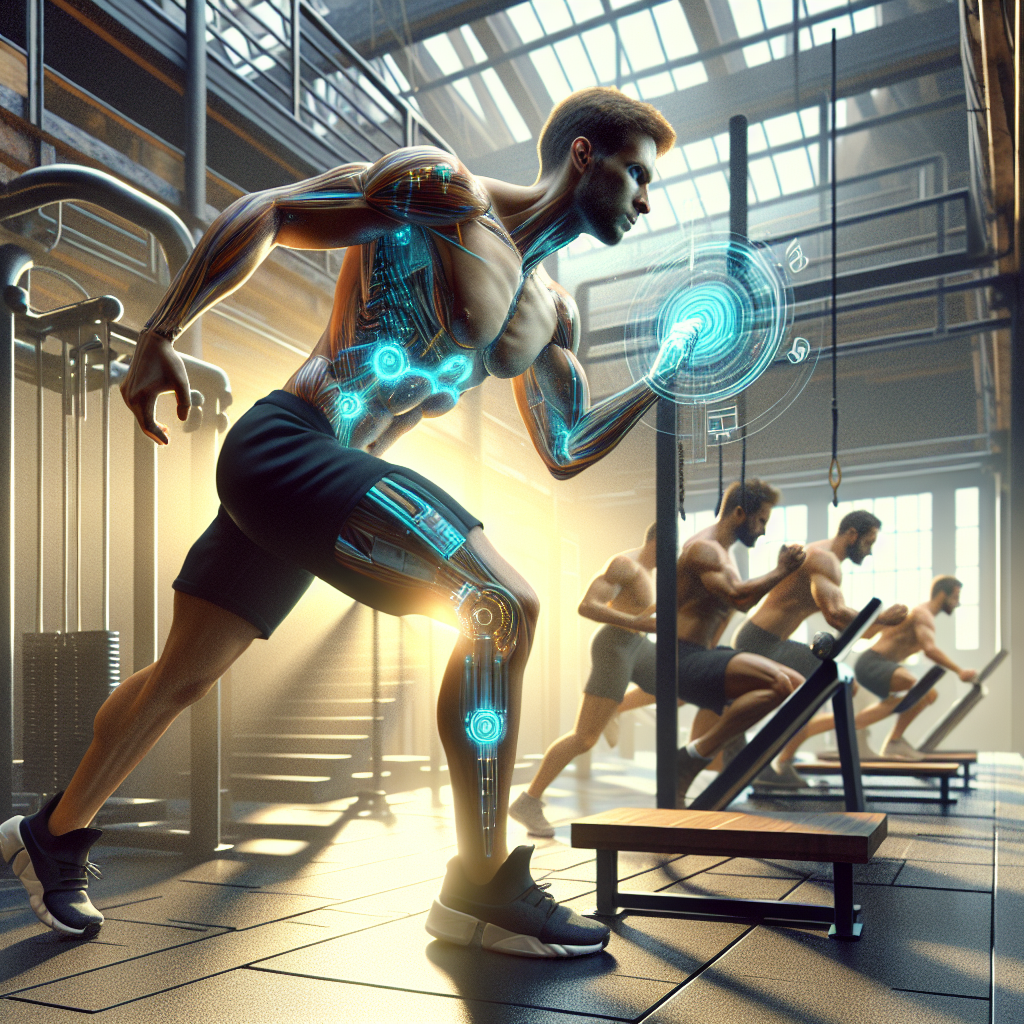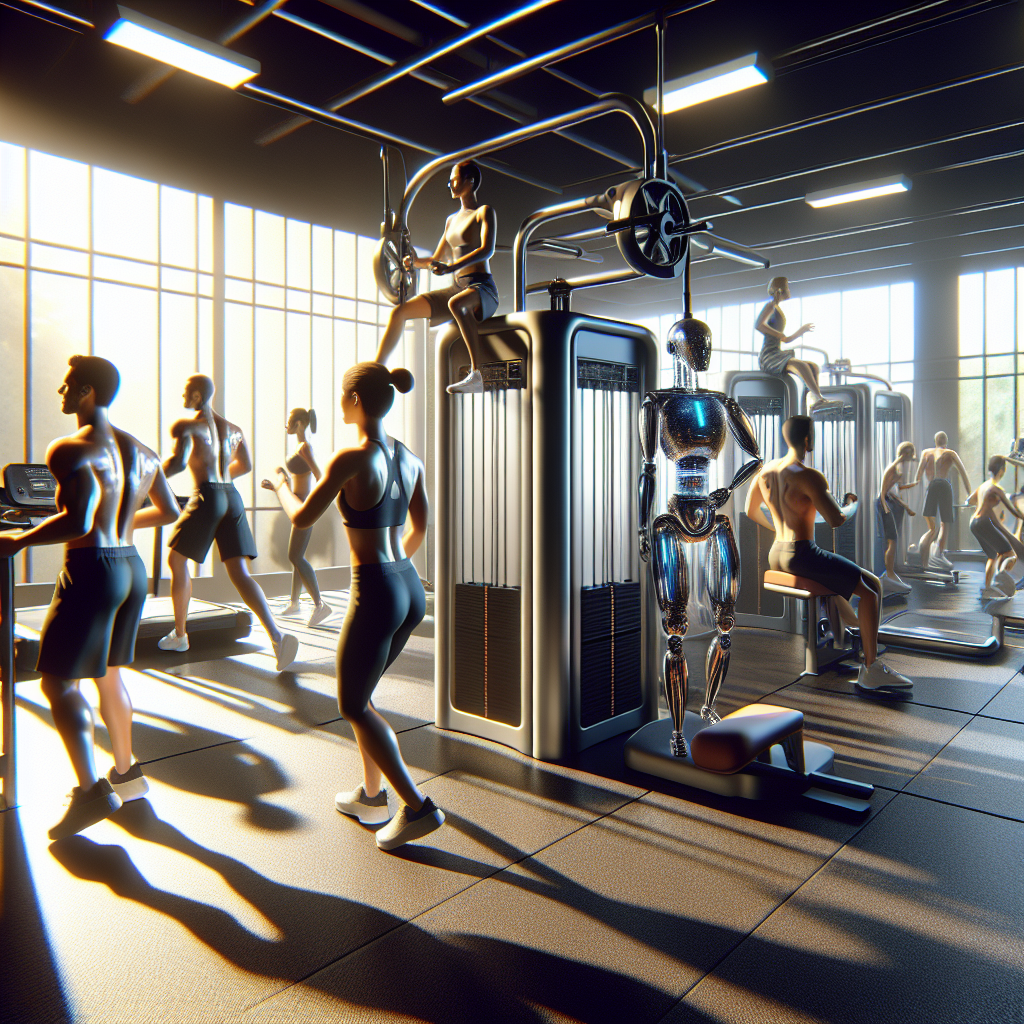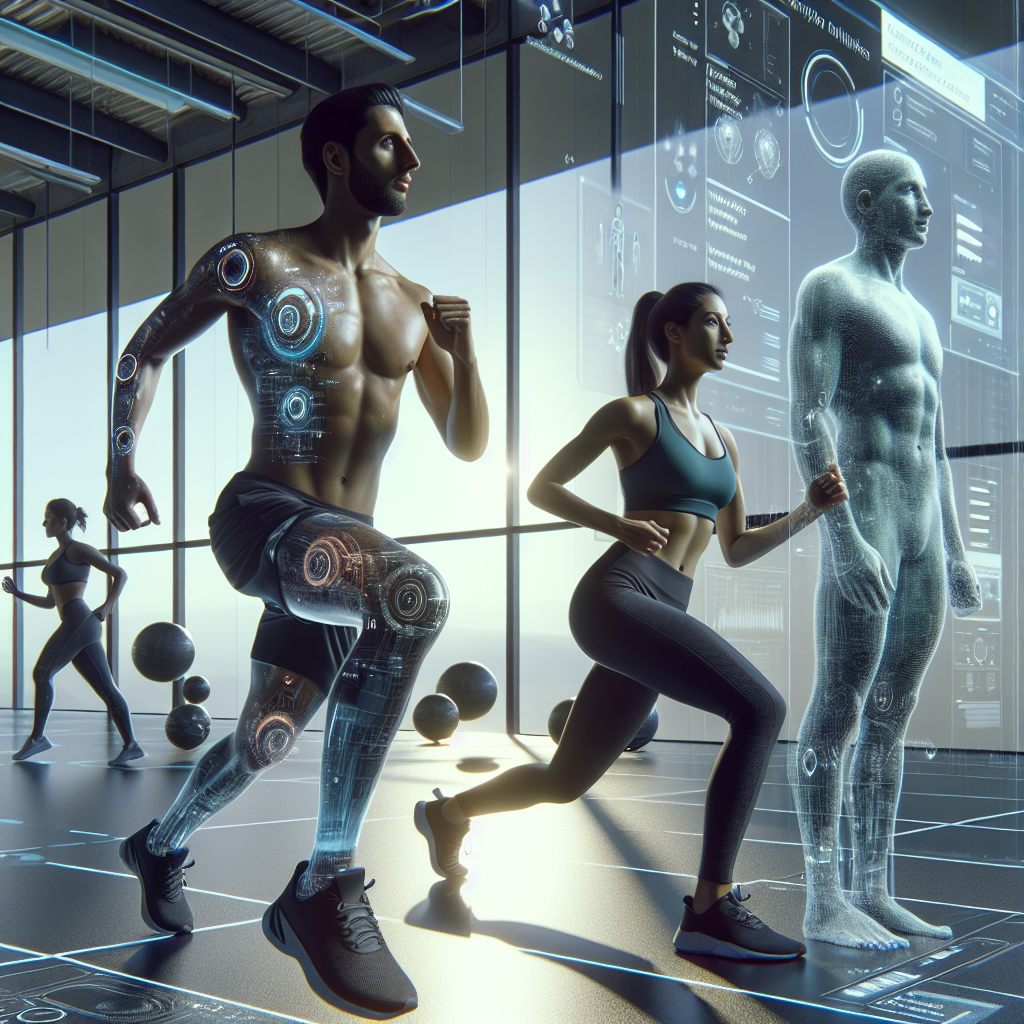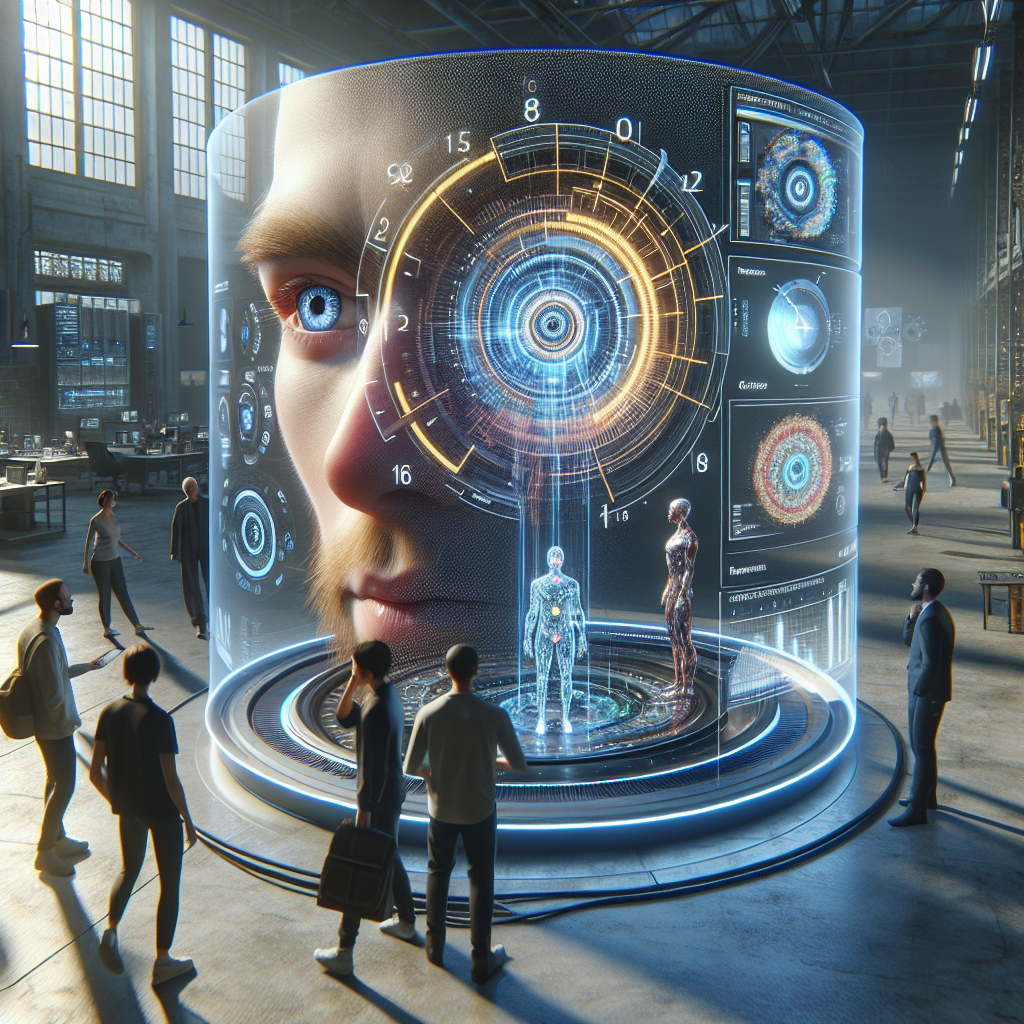Artificial Intelligence (AI) is revolutionizing personalized fitness regimens by offering tailored workout plans and nutritional advice, optimizing performance, and enhancing motivation and adherence. By leveraging AI technologies, fitness enthusiasts can access more precise and personalized guidance, transforming their overall health and wellness journey.
Understanding the Intersection of AI and Fitness
The integration of AI in fitness is reshaping how individuals approach personal health and exercise. This synergy allows for the creation of sophisticated algorithms that analyze an individual’s unique physiological data and behavioral patterns to develop highly customized fitness plans.
The Evolution of Personalized Fitness
Personalized fitness is not a new concept, but the advent of AI has accelerated its growth and accessibility. Traditional methods relied heavily on generic workout plans and nutritional advice. However, AI’s ability to process vast amounts of data and learn from user interactions has drastically improved the personalization of fitness regimens.
How AI Works in Fitness Applications
AI in fitness applications employs machine learning algorithms to analyze data collected from wearable devices, fitness apps, and other digital platforms. By interpreting metrics such as heart rate, step count, and sleep patterns, AI can determine optimal exercise routines and dietary needs.
Machine Learning and Data Analysis
- Utilizes vast datasets to identify trends and patterns in user behavior.
- Enhances prediction accuracy for fitness outcomes.
- Continuously adapts to user progress and changing goals.
Natural Language Processing in Fitness
Natural Language Processing (NLP) enables AI systems to understand and respond to user inquiries or feedback, making interactions with fitness applications more intuitive and user-friendly.
Benefits of AI-Driven Fitness Regimens
The introduction of AI into fitness regimens offers numerous advantages that cater to both novice and seasoned athletes. These benefits include enhanced personalization, improved motivation, and increased adherence to fitness plans.
Enhanced Personalization
AI systems analyze individual health data to create personalized fitness plans that consider a user’s specific needs, limitations, and goals. This personalization enhances the efficiency and effectiveness of workouts.
Custom Workout Plans
- Designs exercises tailored to individual fitness levels and goals.
- Adjusts intensity and duration based on real-time performance data.
- Incorporates user preferences and feedback for optimal engagement.
Nutritional Guidance
- Provides meal plans aligned with dietary restrictions and fitness objectives.
- Adapts nutritional advice based on activity levels and progress.
- Utilizes data to suggest supplements and hydration strategies.
Improved Motivation and Accountability
AI technologies can boost motivation by offering real-time feedback, tracking progress, and celebrating milestones, keeping users engaged and accountable.
Gamification and Social Interaction
- Incorporates gamified elements to make workouts more enjoyable.
- Facilitates social interactions and challenges with other users.
- Encourages healthy competition and community support.
Increased Adherence to Fitness Programs
By providing personalized, engaging, and adaptive fitness plans, AI increases the likelihood of users sticking to their regimens, leading to better long-term health outcomes.
The Role of Wearable Technology and AI
Wearable technology plays a crucial role in the implementation of AI-driven fitness regimens by providing the data necessary for personalized recommendations and monitoring progress.
Data Collection and Analysis
Wearables such as smartwatches, fitness bands, and heart rate monitors collect data on various health metrics, which AI systems analyze to optimize fitness plans.
Key Metrics Monitored
- Heart rate and variability.
- Calories burned and activity levels.
- Sleep quality and duration.
Integration with Fitness Apps
AI-powered fitness apps sync with wearable devices to provide a seamless experience. This integration allows for real-time updates and feedback, enhancing the overall effectiveness of personalized fitness regimens.
Challenges in Implementing AI in Fitness
Despite its benefits, the integration of AI in fitness is not without challenges. Data privacy, algorithm accuracy, and user accessibility are critical issues that must be addressed.
Data Privacy Concerns
The collection and analysis of personal health data raise significant privacy concerns. Ensuring data security and user consent is paramount to the ethical implementation of AI in fitness.
Algorithm Accuracy and Bias
AI systems must be trained on diverse datasets to avoid bias and ensure accurate recommendations. Continuous testing and refinement of algorithms are necessary to maintain reliability.
Accessibility and Usability
Ensuring that AI-driven fitness solutions are accessible and user-friendly for all demographics is crucial. Efforts must be made to reduce barriers to entry, such as cost and technological literacy.
The Future of AI in Personalized Fitness
As AI technology continues to evolve, its role in personalized fitness regimens is expected to expand, offering even more precise and effective solutions for health and wellness.
Advancements in AI Technology
Future developments in AI, such as improved machine learning models and enhanced NLP capabilities, will further refine personalization and user interaction in fitness applications.
Integration with Emerging Technologies
AI’s integration with other emerging technologies, such as virtual reality (VR) and augmented reality (AR), will create immersive and engaging fitness experiences that further motivate users and enhance adherence.
Expansion of AI-Driven Fitness Solutions
The continued growth of AI-driven fitness solutions will likely lead to a broader range of applications, catering to specific populations and addressing unique health challenges.
Conclusion
AI’s role in personalized fitness regimens is transforming the way individuals approach health and wellness. By leveraging advanced technologies, AI offers highly customized and effective fitness solutions that enhance motivation, adherence, and overall health outcomes. As AI continues to evolve, its potential to revolutionize personalized fitness regimens will only grow, paving the way for a healthier and more active future.
In conclusion, the integration of AI in personalized fitness regimens represents a significant advancement in the field of health and wellness. By harnessing the power of AI, individuals can achieve their fitness goals more efficiently and effectively than ever before, leading to improved health and quality of life.
Transform Your Fitness Journey Today!
Discover the Power of AI with PurelyFit:
– Experience workouts tailored to your unique goals.
– Explore over 600,000 recipes for every lifestyle and dietary preference.
– Enjoy real-time progress tracking and adaptive fitness plans.
Take the first step towards a healthier, happier you. Embrace a smarter way to achieve your fitness goals with PurelyFit. Start your journey now and see the difference AI can make in your life!












